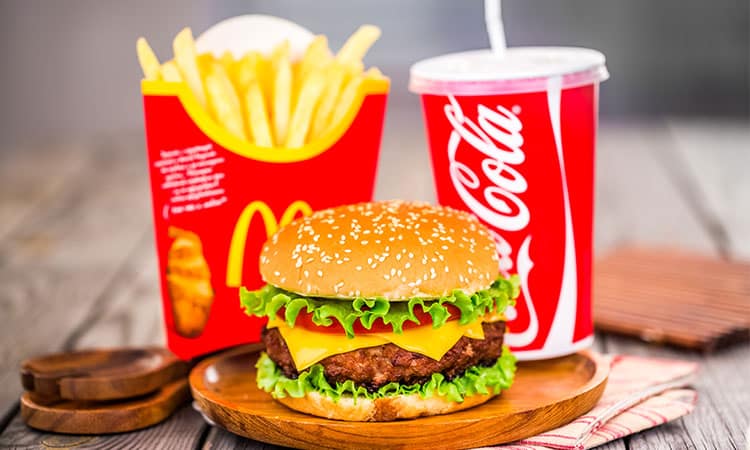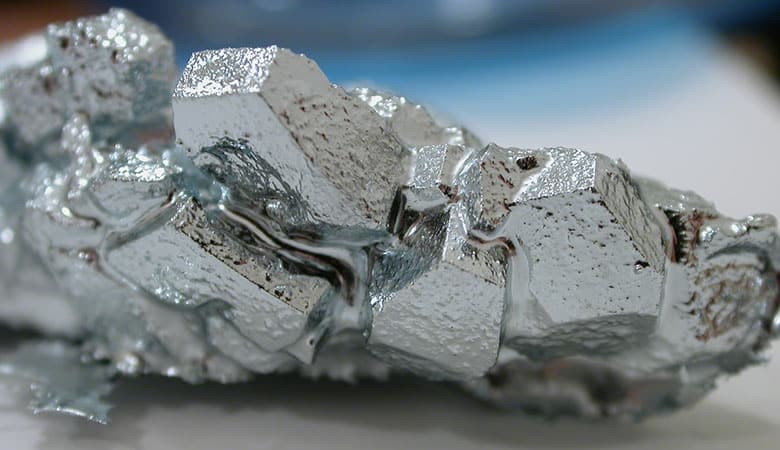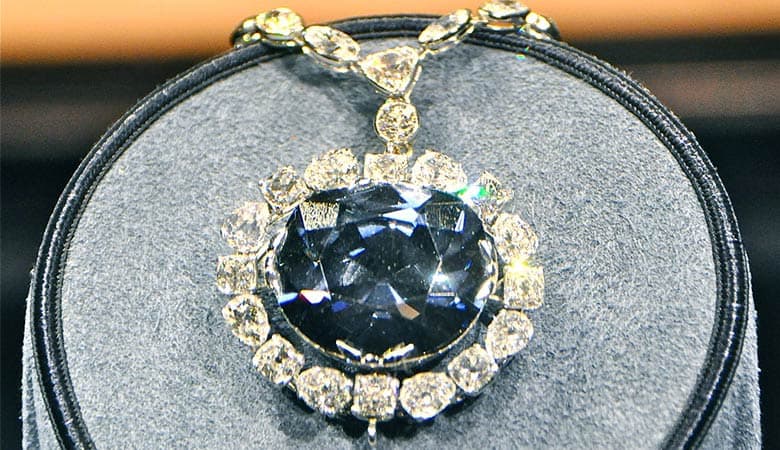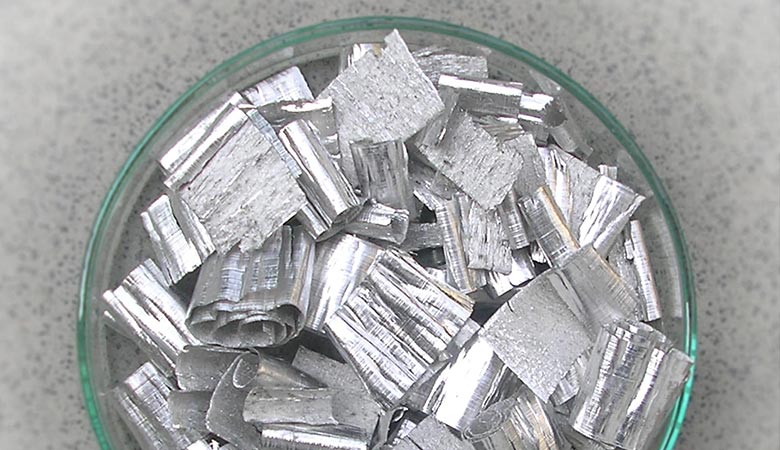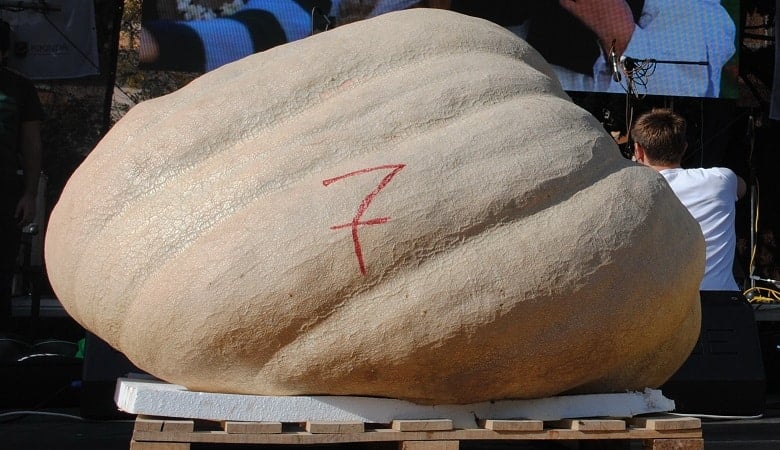Asking which fruit is lightest is a little bit like the old riddle about a pound of feathers and a pound of lead. After all, it isn’t shocking that a watermelon weighs more than a raspberry—but a watermelon contains many servings while it takes many raspberries to make a single serving. It makes more sense to look at the density of fruit and even more sense to ask about their energy or nutrient density.
What are the lightest fruits in the world? The direct answer to this question would depend on a lot of variables. Would you be weighing a single fruit or a single serving? Would you be weighing the fruit as it grows, as it is sold, or as it is prepared? What people want to know is how much they get in a serving and what they get out of each serving they eat. This is a fruit’s density and nutrient density.
The idea of eating low energy density foods has become an increasingly popular element of plans that seek to maintain healthy body weight through a balanced diet. This approach provides an effective alternative to diet plans that ask people to make dramatic changes to reach weight loss goals. Fruits and veggies plan an important role in these plans. Read on to learn which fruits fill you up without weighing you down.
20 Fruits with Low Energy Density
Low energy density foods have been getting more attention as a healthy part of any balanced diet. Beyond that, there are even some diet plans that make them the central focus of their approach. So, it goes without saying that it’s worth investigating to learn more about low energy density foods. Since fruits are an important source of vitamins and minerals, this article will look at the best low energy density fruits.
If you search online, you will find some elementary school science projects that measure the density of individual fruits and vegetables. If you look hard enough, you will even find some that try to draw correlations between the density of fruits and their health benefits. It’s a great lesson plan for getting students to think about the nutritional benefits of fruit, but there are easier ways to find out what you need to know about fruit in a low energy density diet.
#1 – Strawberries
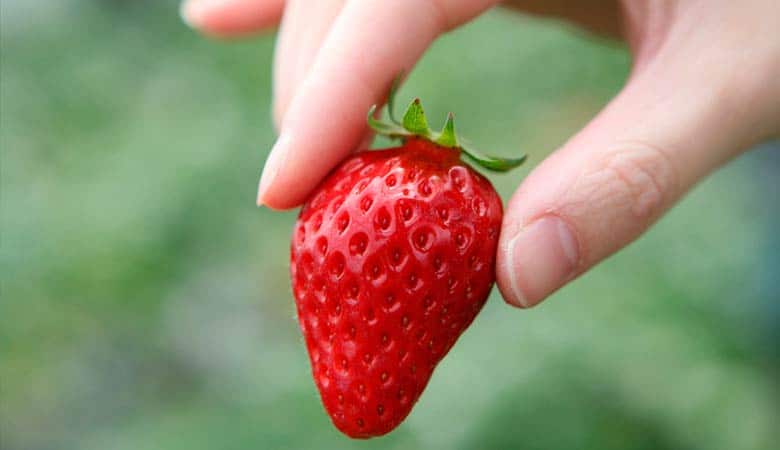
One cup of sliced strawberries weighs approximately 166g. In that amount of food, you get 53 calories that come from 0.5g of fat, 12.7g of carbohydrates, and 1.1g of protein. But more importantly, you will get vitamin C, manganese, folate, and potassium. Strawberries are also great because they have a lower glycemic index than most fruits and they’re high in antioxidants. Some studies have even suggested that they prevent cancer and tumor formation.
#2 – Peaches
One cup of sliced peaches weighs roughly 154g. In that amount of peaches, you get 60 calories that come from 0.4g of fat, 14.7g of carbohydrates, and 1.4g of protein. Peaches are high in copper and potassium and offer a good source of vitamins A, E, and C, as well as niacin.
#3 – Cantaloupe
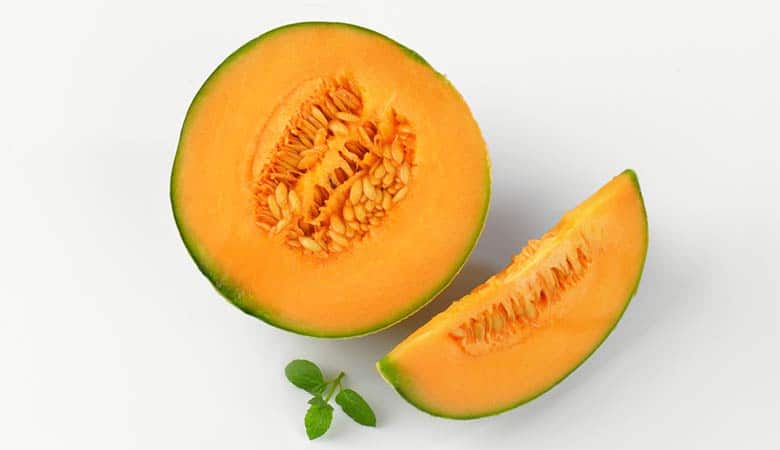
One cup of cantaloupe melon balls weighs 177g. In that amount, you get 60 calories that come from 0.3g of fat, 14.4g of carbohydrates, and 1.5g of protein. Cantaloupe is high in vitamins A and C and very high in beta carotene. Cantaloupe is also a good source of copper and potassium.
#4 – Honeydew Melon
A cup of diced honeydew weighs 170g and provides 61 calories from 0.2g of fat, 15.5g of carbohydrates, and 0.9g of protein. Honeydew melon is over 90% water, but it does provide potassium, magnesium, and vitamin C.
#5 – Red and Purple Grapes
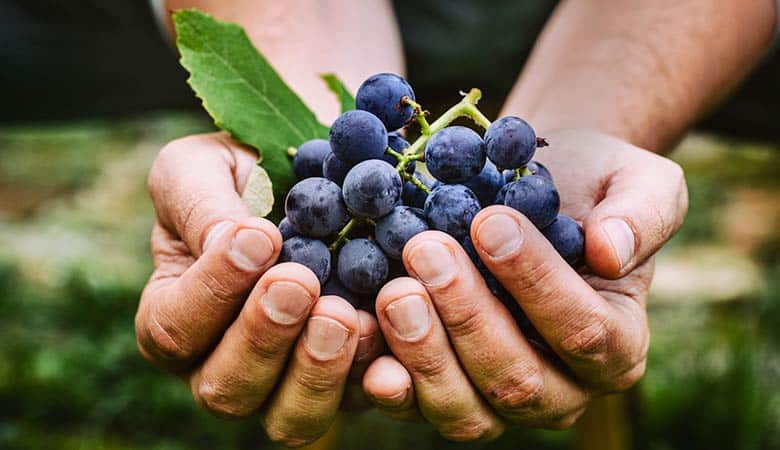
One cup of grapes weighs 92g and contains 62 calories that come from 0.3g of fat, 15.8g of carbohydrates, and 0.6g of protein. Red and purple grapes have high antioxidant content and contain anthocyanins and resveratrol, which have been shown to reduce inflammation. Studies also suggest that compounds in grapes are beneficial for the heart, eyes, joints, and brain.
#6 – Blackberries
A cup of blackberries weighs 144g and provides 62 calories in the form of 0.7g of fat, 13.8g of carbohydrates, and 2.0g of protein. Even though they are 88% water, they provide 31% of the daily value of fiber. They are also a good source of vitamins C and K. Antioxidants found in blackberries are believed to reduce inflammation and aging of the arteries.
#7 – Papaya
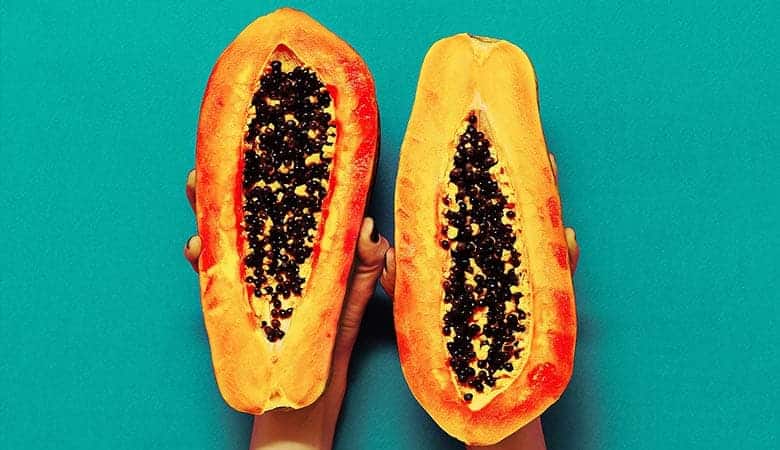
One cup of one-inch pieces of raw papaya weighs 145g and contains 62 calories. A serving of papaya has 0.4g of fat, 15.7g of carbohydrate, and 0.7g of protein. Papaya is high in vitamins C and A as well as potassium and folate. Papaya is also a good source of the cancer-fighting antioxidant lycopene.
#8 – Raspberries
A cup of raspberries weighs 123g and provides 64 calories from 0.8g of fat, 14.7g of carbohydrates, and 1.5g of protein. They are high in dietary fiber, manganese, copper, and vitamin C.
#9 – Apples
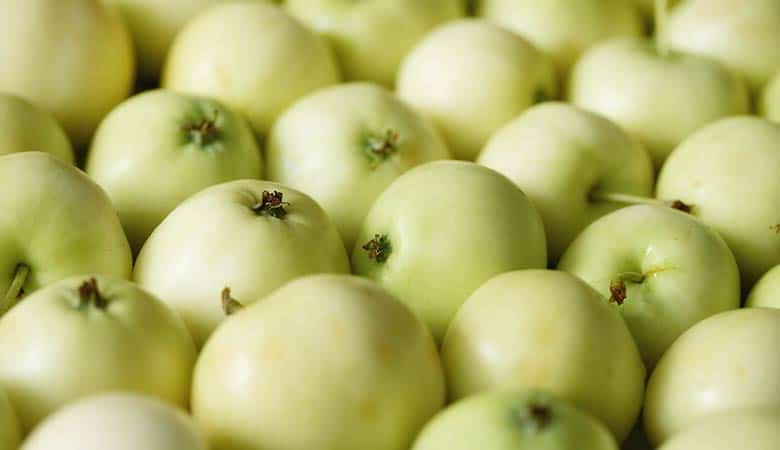
One cup of quartered or chopped apple pieces weighs 125g and contains 65 calories that come from 0.2g of fat, 17.3g of carbohydrate, and 0.3g of protein. Apples are high in fiber, potassium, and vitamins C, K, and B. Apples are a good source of pectin, a prebiotic that is good for gut health.
#10 – Grapefruit
A cup of grapefruit sections weighs 230g and contains 74 calories. That amount of grapefruit delivers 0.2g of fat, 18.6g of carbohydrate, and 1.4g of protein. Grapefruits are known to aid weight loss, reduce insulin levels, and improve insulin resistance rates. Studies also suggest that they can lower cholesterol levels and help prevent the formation of kidney stones.
#11 – Apricots
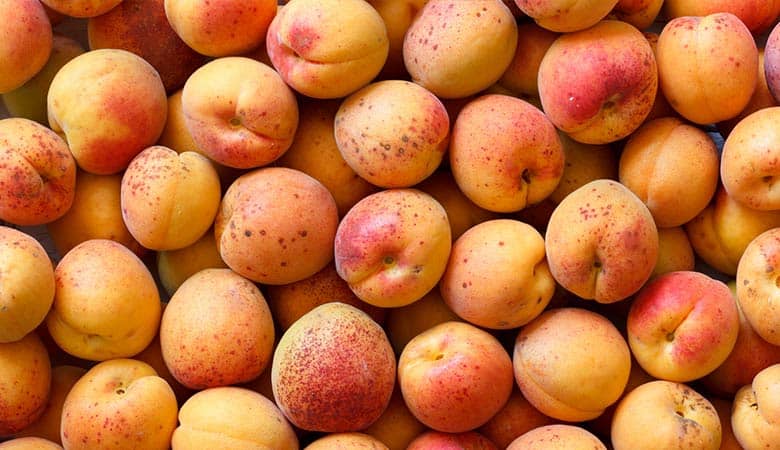
One cup of raw apricot halves weighs 155g and provides 74 calories from 0.6g of fat, 17.2g of carbohydrates, and 2.2g of protein. Apricots are a good source of potassium and are high in vitamins A, C, and E.
#12 – Plums
A cup of sliced plums weighs 165g and contains 76 calories. This comes from 0.5g of fat, 18.8g of carbohydrate, and 1.2g of protein. Plums are a good source of potassium and vitamins C and K.
#13 – Pineapple
One cup of pineapple chunks weighs 165g and provides 83 calories from 0.2g of fat, 21.6g of carbohydrates, and 0.9g of protein. A cup of pineapple delivers 131% of the RDI for vitamin C and 76% of the RDI for manganese. It also provides a mix of enzymes that have anti-inflammatory properties and aid in the digestion of proteins.
#14 – Blueberries
A cup of blueberries weighs 148g and delivers 84 calories from 0.5g of fat, 21.4g of carbohydrates, and 1.1g of protein. Blueberries are high in dietary fiber, manganese, and vitamins C and K. They are also an excellent source of antioxidants that reduce the risk of chronic conditions like heart disease, diabetes, and Alzheimer’s.
#15 – Oranges
One cup of orange sections weighs 180g and contains 85 calories. A serving of orange provides 0.2g of fat, 21.2g of carbohydrates, and 1.7g of protein. Oranges are high in vitamins B and C as well as potassium, thiamine, and folate.
#16 – Pomegranate Seeds
A cup of pomegranate seeds weighs 174g and contains 144 calories from 2.0g of fat, 32.6g of carbohydrates, and 3.0g of protein. Pomegranates are higher in antioxidants than red wine or green tea and have anti-inflammatory benefits.
#17 – Cranberries
One cup of chopped cranberries weighs 110g and contains 50 calories. This comes from 0.1g of fat, 13g of carbohydrates, and 0.5g of protein. Cranberries are rich in manganese and copper, as well as vitamins C, E, and K1. Cranberries are known to prevent urinary tract infections due to their high levels of A-Type proanthocyanidins.
#18 – Lemons
One cup of peeled lemon sections weighs 200g and contains just 58 calories. A serving of lemon provides 0.6g of fat, 18.6g of carbohydrates, and 2.2g of protein. Lemons are known to lower blood lipids and blood pressure, and they can help prevent weight gain.
#19 – Watermelon
A cup of diced watermelon weighs 152g and contains just 46 calories. This comes from 0.2g of fat, 11g of carbohydrates, and 0.9g of protein. Watermelon is high in vitamins A and C. It is also a good source of antioxidants like lycopene, carotenoids, and cucurbitacin E.
#20 – Kiwi Fruit
One cup of sliced kiwi weighs 180g and provides 110 calories from 0.9g of fat, 26g of carbohydrate, and 2.1g of protein. Kiwis are very high in vitamin C and a good source of dietary fiber.
Sources:
https://www.ndtv.com/food/weight-loss-include-these-low-energy-density-foods-in-your-diet-1988618
https://draxe.com/nutrition/pomegranate-seeds/
https://www.education.com/science-fair/article/fruits-vegetables-denser-than-others/
https://www.education.com/science-fair/article/does-density-indicate-nutrition/
https://www.myfooddata.com/articles/low-calorie-fruits.php
https://www.bing.com/search?q=Cranberry+Serving+Size&form=ANNTH1&refig=9e9256e922d4404383936895cf489e49&sp=-1&ghc=1&pq=cranberry+serving+size&sc=6-22&qs=n&sk=&cvid=9e9256e922d4404383936895cf489e49
https://www.healthline.com/nutrition/foods/lemons#nutrition
https://www.bing.com/search?q=Watermelon+serving+size&form=ANNTH1&refig=6bcdb0377cd6406a8c13785a355c13e6&sp=-1&ghc=1&pq=watermelon+serving+size&sc=6-23&qs=n&sk=&cvid=6bcdb0377cd6406a8c13785a355c13e6
https://www.healthline.com/nutrition/20-healthiest-fruits#section18

